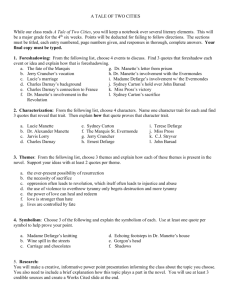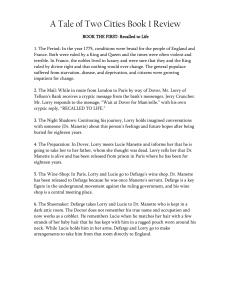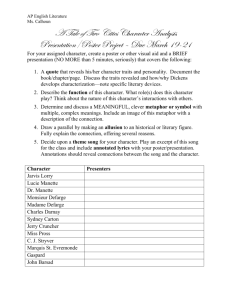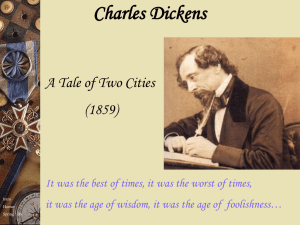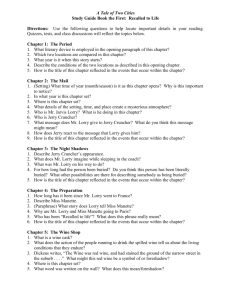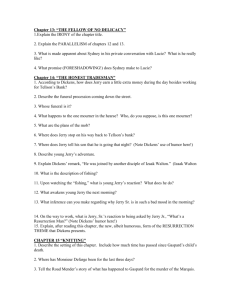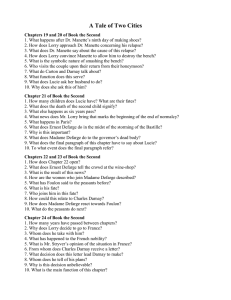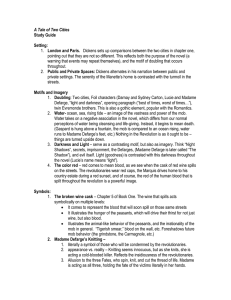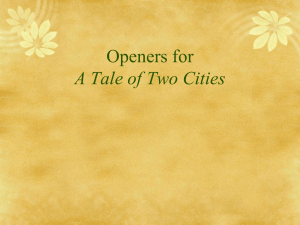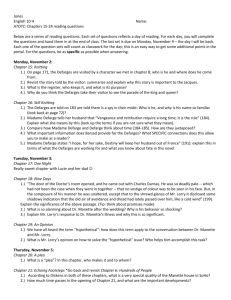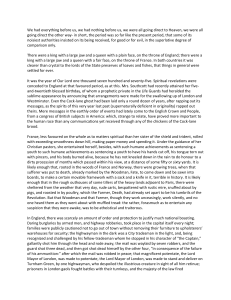Book-1-Chapters-4
advertisement
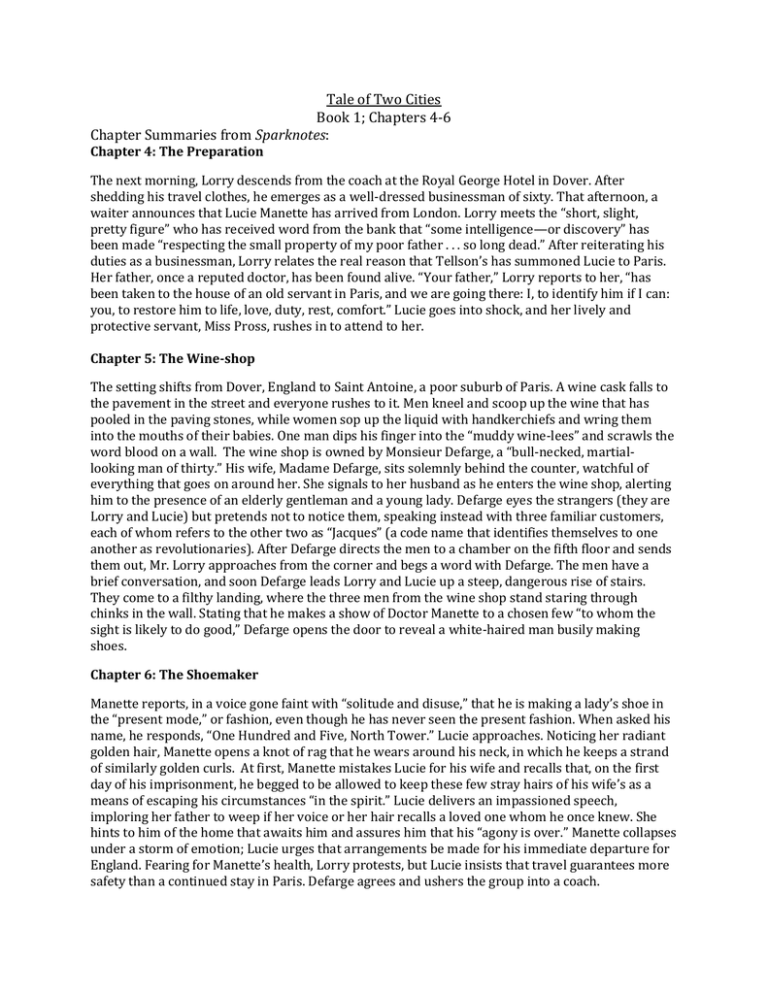
Tale of Two Cities Book 1; Chapters 4-6 Chapter Summaries from Sparknotes: Chapter 4: The Preparation The next morning, Lorry descends from the coach at the Royal George Hotel in Dover. After shedding his travel clothes, he emerges as a well-dressed businessman of sixty. That afternoon, a waiter announces that Lucie Manette has arrived from London. Lorry meets the “short, slight, pretty figure” who has received word from the bank that “some intelligence—or discovery” has been made “respecting the small property of my poor father . . . so long dead.” After reiterating his duties as a businessman, Lorry relates the real reason that Tellson’s has summoned Lucie to Paris. Her father, once a reputed doctor, has been found alive. “Your father,” Lorry reports to her, “has been taken to the house of an old servant in Paris, and we are going there: I, to identify him if I can: you, to restore him to life, love, duty, rest, comfort.” Lucie goes into shock, and her lively and protective servant, Miss Pross, rushes in to attend to her. Chapter 5: The Wine-shop The setting shifts from Dover, England to Saint Antoine, a poor suburb of Paris. A wine cask falls to the pavement in the street and everyone rushes to it. Men kneel and scoop up the wine that has pooled in the paving stones, while women sop up the liquid with handkerchiefs and wring them into the mouths of their babies. One man dips his finger into the “muddy wine-lees” and scrawls the word blood on a wall. The wine shop is owned by Monsieur Defarge, a “bull-necked, martiallooking man of thirty.” His wife, Madame Defarge, sits solemnly behind the counter, watchful of everything that goes on around her. She signals to her husband as he enters the wine shop, alerting him to the presence of an elderly gentleman and a young lady. Defarge eyes the strangers (they are Lorry and Lucie) but pretends not to notice them, speaking instead with three familiar customers, each of whom refers to the other two as “Jacques” (a code name that identifies themselves to one another as revolutionaries). After Defarge directs the men to a chamber on the fifth floor and sends them out, Mr. Lorry approaches from the corner and begs a word with Defarge. The men have a brief conversation, and soon Defarge leads Lorry and Lucie up a steep, dangerous rise of stairs. They come to a filthy landing, where the three men from the wine shop stand staring through chinks in the wall. Stating that he makes a show of Doctor Manette to a chosen few “to whom the sight is likely to do good,” Defarge opens the door to reveal a white-haired man busily making shoes. Chapter 6: The Shoemaker Manette reports, in a voice gone faint with “solitude and disuse,” that he is making a lady’s shoe in the “present mode,” or fashion, even though he has never seen the present fashion. When asked his name, he responds, “One Hundred and Five, North Tower.” Lucie approaches. Noticing her radiant golden hair, Manette opens a knot of rag that he wears around his neck, in which he keeps a strand of similarly golden curls. At first, Manette mistakes Lucie for his wife and recalls that, on the first day of his imprisonment, he begged to be allowed to keep these few stray hairs of his wife’s as a means of escaping his circumstances “in the spirit.” Lucie delivers an impassioned speech, imploring her father to weep if her voice or her hair recalls a loved one whom he once knew. She hints to him of the home that awaits him and assures him that his “agony is over.” Manette collapses under a storm of emotion; Lucie urges that arrangements be made for his immediate departure for England. Fearing for Manette’s health, Lorry protests, but Lucie insists that travel guarantees more safety than a continued stay in Paris. Defarge agrees and ushers the group into a coach. Bulleted Notes from Sparknotes Summary: Questions (questions about parts that you did not understand, big picture questions, questions for discussion, etc.) 1 2. 3. Connections (connect to your personal experiences, the French Revolution, other books, movies, tv shows, sparknotes summary, etc.) Passages that Stood Out (write the first four words and page number and then briefly explain why) Language (rhetoric, literary devices, etc.) Ah ha moments Other comments:
